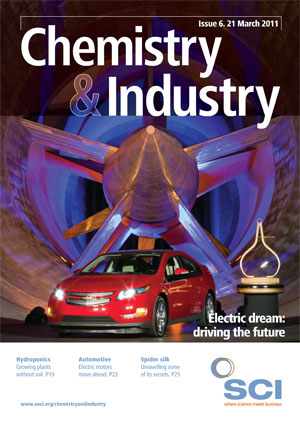The Indian chemical industry is expected to be worth $200bn by 2020, but Europe’s REACH legislation could cut into this growth over the next decade. REACH already threatens 24% of India’s chemical exports, according to the Indian government, and some chemical producers in the country have decided that the European market is not worth the investment and are dropping out of the registration race altogether.
Industry sources maintain that REACH is pushing up the cost of exporting a chemical by around Rs50m-60m (£69,000-£82,800) and have asked the government to consider subsidising the costs of registration.
R Gokhale of the Indian Chemical Council (ICC), which represents over 390 chemical manufacturers and exporters, says: ‘The government should constitute a fund for the reimbursement of REACH registration expenses. It should also evolve a mechanism for granting reimbursement of REACH expenses to incentivise chemical exports to the European Union countries. Though it has not been granted in this budget (28 February 2011), one hopes our pleas have not fallen on deaf ears.’
India’s minister of state for commerce and industry, Jyotiraditya Scindia, says that the authorities in the European Commission have been informed of the concerns of the Indian chemical industry. He adds that India is holding bilateral consultation with the EU on REACH.
India has gone as far as to raise its concerns with the Technical Barrier to Trade Committee (TBT) of the World Trade Organization (WTO) and is also holding discussions with Brazil and Argentina on challenging REACH. Scindia has asked the Delhibased Centre for WTO Studies to assess REACH’s impact on India’s chemical sector.
Several Indian chemical and pharmaceutical companies are of the opinion that REACH is a non-tariff trade barrier. ‘Many chemical producers are alarmed as they still don’t know what REACH involves or what its impact will be,’ says pharma major Suven Life Sciences’ chief executive Venkat Jassi. He adds that many companies have already curtailed exports to Europe, which is likely to result in higher prices for some chemicals.
EU chemical exports are worth more than $2bn/year to the Indian economy. India exported chemicals worth €2.33bn to the EU in 2007, accounting for 8% of total Indian exports, according to data from the European Commission’s trade with India department. The Indian government says the cost of registering a chemical varies between Rs325,000 to Rs8m (£4485 to £110,400), depending upon the hazardous nature of the chemical.
‘It is an uphill task. There is a dire need for clarity regarding REACH, despite several attempts to raise awareness both by the government and the industry bodies,’ says Deodhar Wakankar, a REACH expert at the ICC. ‘The biggest challenge is to understand and follow the legislation because it is very confusing,’ he says. ‘Not only are we starting the race late, we also have to learn the rules of a new game.’
The Indian chemical industry is entertaining various concerns, including uncertainty about how REACH works, its complexity and use of ambiguous terms, bureaucracy and the cost of compliance that has to be borne by exporters. ‘The regulation is causing severe problems for small and mid-sized industries, many of whom have decided to curtail exports,’ Wakankar says.
According to data released by India’s commerce ministry, the country’s exports crossed the $200bn mark in the first 11 months of the 2010-11 fiscal year. Though chemicals performed well over this period, accounting for 22% of exports, the same might not hold true next year.
‘The complexity of REACH means compliance is different for nearly every company and almost every chemical, adding to the overall cost,’ says Jeevandas Bhatia, president of Apollo Chemical Company, which has introduced a REACH compliance service for its officials and subsidiaries. He adds that REACH would increase the cost of exports to Europe by several thousand rupees ‘as the compliance cost is very high’.
Though Deloitte Touche Tohmatsu’s global chemical leader Tim Hanley recently noted that India’s chemical industry has a promising future and was expected to see around 9-10% growth annually, experts believe that REACH could be a major obstacle to increasing chemical exports from India to the EU.
Indian companies have also been complaining about the cost of complying with registration. ‘The process of generating safety data is not only time consuming, but also expensive,’ says R Joshi of Hiremath Chemicals. The cost of conducting toxicology tests, including the paperwork, ranges from $50,000 to $200,000 per application, according to Joshi.
A shortage of globally recognised testing labs has also proved to be a major problem for the industry. At present, India has just a dozen good laboratory practice (GLP) approved labs, as certified by the EU and OECD. As several of the labs are housed at large pharmaceutical companies, such as Ranbaxy and Dr Reddy’s, the few remaining independent labs face a daunting workload.
Shridhar Lokhande, at drug firm Glenmark Pharmaceuticals, says the confidentiality of technical information submitted to the European Chemical Agency (ECHA) through an EU representative is also a bone of contention. Lokhande worries: ‘What happens if my data lands up with my competitor?’





